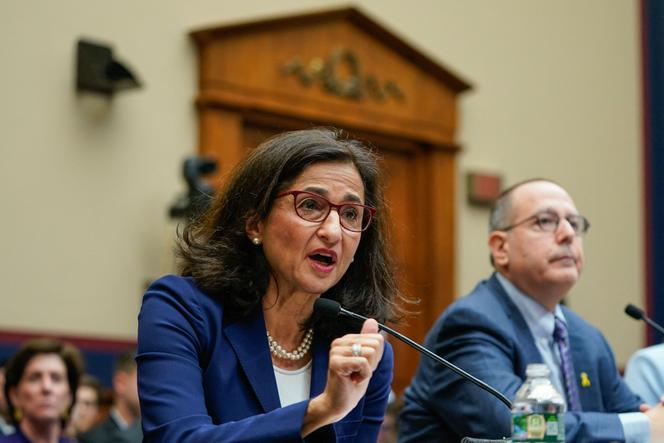


And that makes three: After Harvard's Claudine Gay and the University of Pennsylvania's Elizabeth Magill, it was Nemat Shafik's turn to tender her resignation as president of Columbia University, on Wednesday, August 14. The three recently appointed women did not survive the pro-Palestinian outpouring from students and some faculty on their campuses and the backlash from resolutely pro-Israeli major donors and the Republican Party. Shafik, 61, stepped down immediately. "This period has taken a considerable toll on my family, as it has for others in our community," explained Shafik, who goes by the nickname "Minouche," in a letter to the Columbia academic community. "Over the summer, I have been able to reflect and have decided that my moving on at this point would best enable Columbia to traverse the challenges ahead."
She added that she had accepted a position with the British foreign secretary to lead an evaluation of the government's approach to international development. "Minouche has contributed so much to the Columbia community in an extraordinarily challenging time," the school's board co-chairs wrote in a statement, adding, "While we are disappointed to see her leave us, we understand and respect her decision."
Republican Representative for New York Elise Stefanik, who led the Congressional hearings on universities' handling of pro-Palestinian protests, was jubilant on X on Wednesday evening. "THREE DOWN, so many to go. As I have said consistently since her catastrophic testimony at the Education and Workforce Committee hearing, Columbia University's President Minouche Shafik's failed presidency was untenable and that is was only a matter of time before her forced resignation. After failing to protect Jewish students and negotiating with pro Hamas terrorists, this forced resignation is long overdue. We will continue to demand moral clarity, condemnation of antisemitism, protection of Jewish students and faculty, and stronger leadership from American higher education institutions," wrote Stefanik.
It all happened in April, at the height of the Gaza solidarity movement on campuses. Shafik was put to the test at a hearing conducted in the House of Representatives by Trump-supporting Stefanik, following in the footsteps of her Harvard and Pennsylvania colleagues, in December 2023. Anxious not to repeat the mistakes of her peers, Shafik gave pledges. Asked by Stefanik whether calling for the genocide of the Jews violated their university's bylaws, the Harvard and Penn presidents had replied that it "depended on the context." Shafik, determined not to make her colleagues' mistake, asserted that "yes," it violates it.
You have 61.94% of this article left to read. The rest is for subscribers only.
